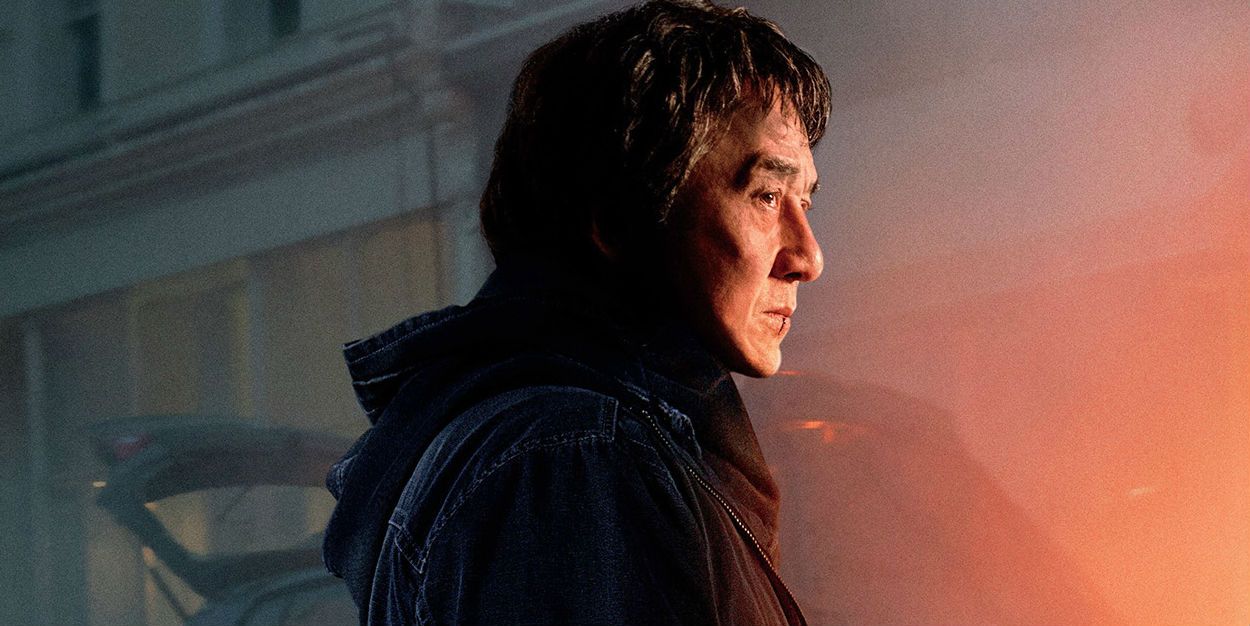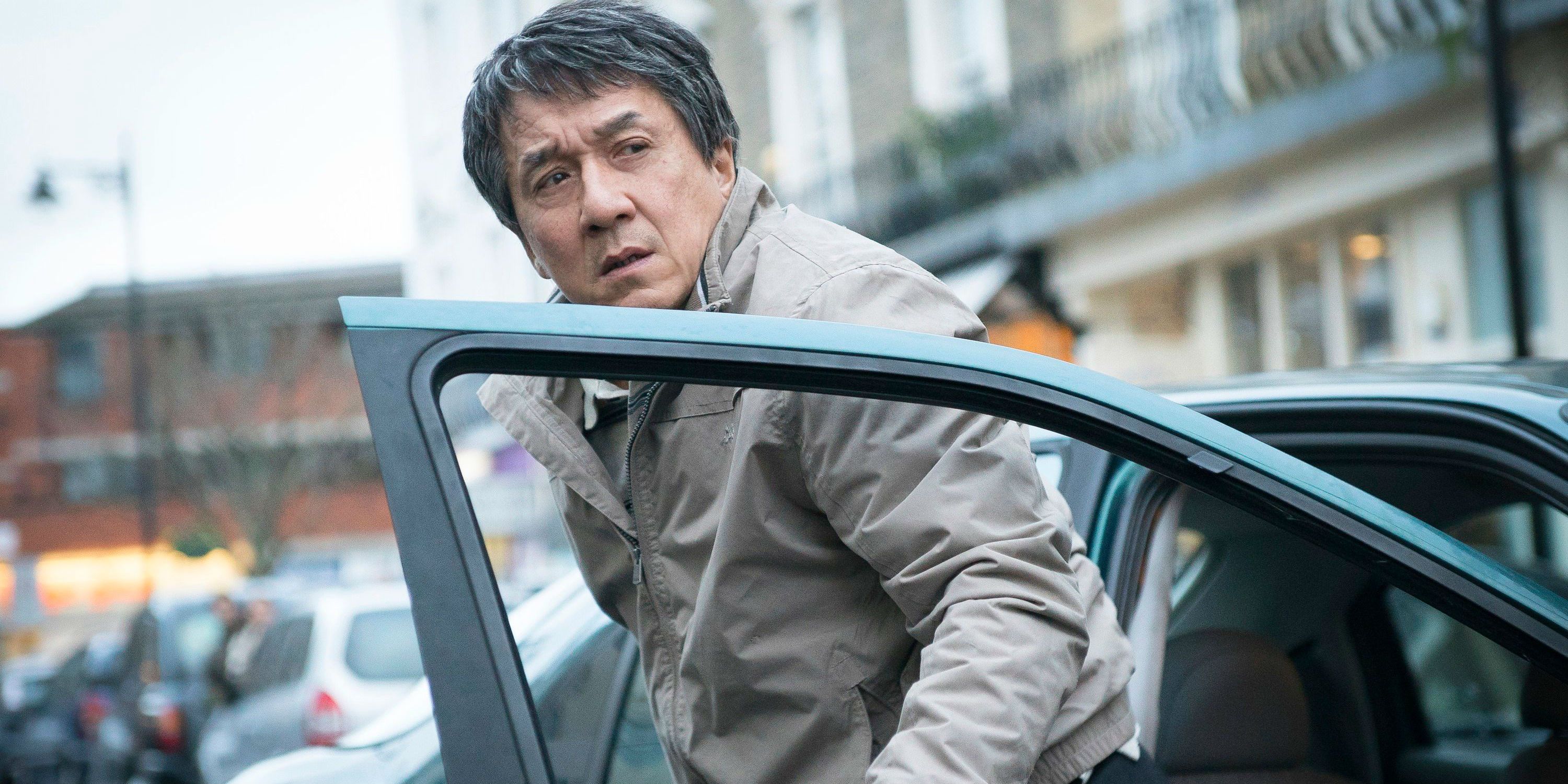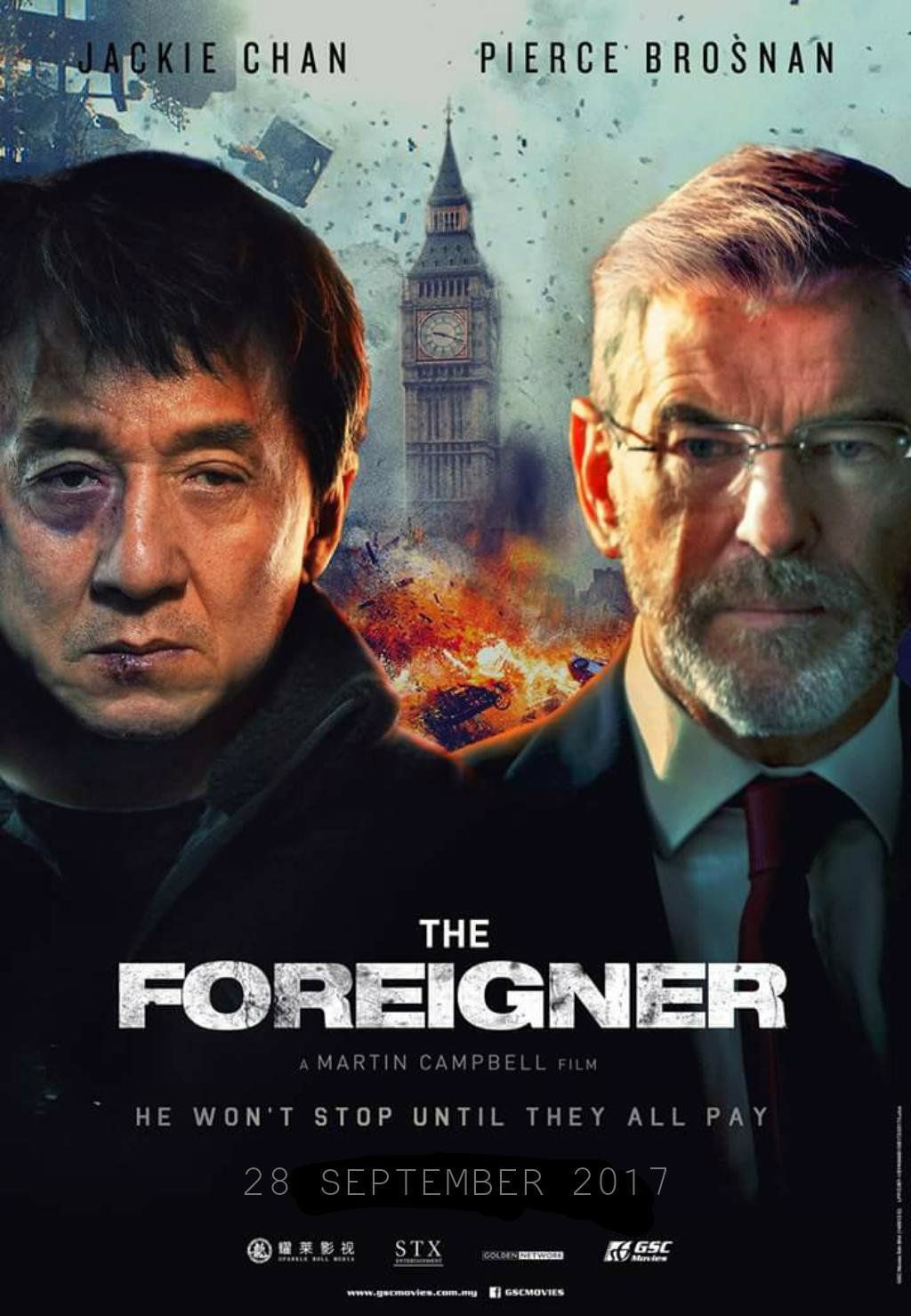The new Jackie Chan film The Foreigner is about as standard as a Taken-riff gets. Chan plays a man whose family is affected by a terrorist organization, and who decides to shoot, explode and punch his way through said terrorists to find redemption. The formula worked in giving Liam Neeson a new lease of life as an ageing action hero, and it'll no doubt give Jackie a little boost in his career with audiences happy to see the martial arts star back kicking ass on-screen. Really, it's a no-lose situation for everyone involved.
Quite unlike Taken, however, is the political backdrop The Foreigner draws upon. While the characters are mostly pastiche typical of the genre, that doesn't change the fact that the film holds the rare of distinction of using Irish paramilitary organization the IRA (Irish Republican Army) as its villains. Not only that, but Pierce Brosnan's Hennessy, the main antagonist, holds a strong likeness to that of Gerry Adams, the leader of Ireland's Sinn Féin party, who has a history with the IRA. Indeed, the resemblance is so striking and shameless that the first trailer for the film went viral on Irish social media, many lauding the idea of Adams and Chan having a fight. It was even taken for granted Chan's adversaries would turn out to be the IRA, even though said reveal was kept out of the first teaser.
Incidental comedy aside, with all of this there's potential for The Foreigner to be quite prescient. As the film is set in London, using Irish terrorists is already stoking some deep ire between the two countries. Ireland was under the rule of the English for centuries, during which time Irish culture (including the native language) was irreparably suppressed. In 1916, the Easter Rising kicked off an armed rebellion on English rule that eventually saw the beginning of a set of negotiations that would grant Ireland independence and create the Republic of Ireland. The civil war was a tumultuous time across the isle, as seen in the two movies Michael Collins, following the Irish politician of the same name who led the rising, and The Wind That Shakes The Barley, which dramatises how the rising affected parts of the country outside of Dublin. The transition of Ireland to republic status wasn't without complications and a major one was that England would hold onto six counties in the north, creating a separate state still governed as part of the British Isles; Northern Ireland.
Northern Ireland would follow whatever way the British decided on various issues, including the adoption of the Euro. As you might imagine, the republican forces that drove the insurgency against British political leadership in Ireland weren't too happy about this, and so over the course of the decades that followed the IRA evolved from freedom fighters to, well, terrorists. In a period dubbed 'The Troubles,' republicans and a counter-movement called unionists (people who want to keep the British connection) engaged in extended conflict.
Bombings and shootings became relatively commonplace as the two ideologies fought, each deeply entrenched in their beliefs, until the Northern Ireland peace process created the Good Friday Agreement in 1998. From then a slow, steady ceasefire started, ending the Troubles in 2007 with the IRA stating they were decommissioning their weapons and firearms. Arguably the most recognisable name of The Troubles is Bobby Sands, a republican fighter who famously died while on hunger strike in HM Prison Maze in Belfast, the capital of Northern Ireland. Sands' story was committed to screen in Hunger, starring Michael Fassbender, in 2008.
During all of this, beginning in the late sixties, Gerry Adams became involved with the political dissonance of the north and the IRA. Starting as a civil rights campaigner, Adams gradually rose to the ranks to become the leader of Sinn Féin, Ireland's largest left-leaning political party. Splitting his time between north and south, Adams has represented Sinn Féin in both Dublin and Belfast at various points in his career. And if you were to ask him, all of that has been above board politicking without any kind of involvement in the illicit activities of the IRA.
Other historians and politicians involved in Belfast tell a different story. It is widely believed that Adams was quite an active member of the republican army, to the point of association in high-level killings. He was arrested in 2014 for questioning on the murder of Jean McConville in 1972, a woman who was killed for allegedly providing information on the IRA to British intelligence. He was acquitted and has repeatedly denied all involvement with the group, but nobody really believes him. His constant denial has itself become memetic in Irish culture - impressions of his northern accent professing that he's not a member of the IRA a very commonly used refrain to laugh off the difficult political history Ireland continues to breed.
Which brings us to The Foreigner, a movie about the IRA bombing London released right in the middle of the fallout of Britain's controversial and democratically elected decision to leave the European Union. This is a move that has left Northern Ireland's political future in a very unknown and worrying state, with the prospects of staying with Britain or rejoining Ireland both presenting great difficulty.
The book the film is based on - The Chinaman, written by Stephen Leather - was released in 1992, so the novel came out before the Northern Ireland peace process had even begun. The Troubles, at that stage, still seemed unending, and the IRA were ripe for use as an amorphous organization out to wreak havoc. As it's now 2017 and Northern Ireland's unsteady foundations are set to be tested by uncertain times for Ireland and Britain all, The Foreigner looks a little less like a flippant thriller and more like a worst-case-scenario warning. Well, minus Gerry Adams fighting a martial arts expert, perhaps that's what's been needed this entire time.




